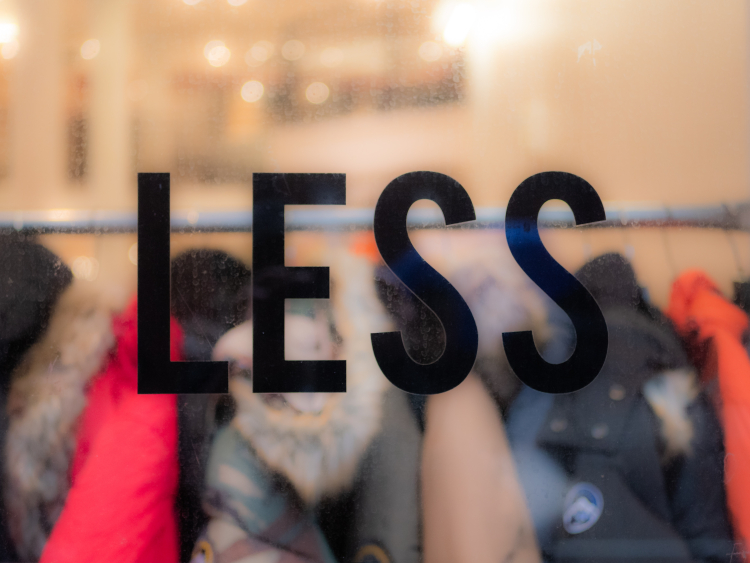The Power of the Positive

Fast fashion has become a pervasive part of our culture, with retailers constantly churning out new designs at breakneck speed. Unfortunately, the rise of fast fashion has led to a culture of overconsumption, which comes with significant environmental and social costs, including pollution, waste, and labor exploitation.
According to the United Nations Environment Programme (UNEP), it is estimated that people are buying 60% more clothes and wearing them for half as long as in years past. The Ellen Macarthur Foundation also estimates that a truckload of abandoned textiles is either incinerated or dumped into a landfill every second.
As a result, activists, slow fashion influencers, and eco-conscious citizens alike have turned to shaming their peers to curb the demand for fast fashion. However, weaponizing shame is an ineffective and counterproductive solution to the ecological and social problems facing the fashion industry.
“We think shaming is this great moral compass…that we can shame people into being better. But that’s not true,” said Dr. Brené Brown, an American professor, author, and lecturer who studies shame, courage, vulnerability, and empathy, in a 2020 episode of her podcast, 'Unlocking Us'. Brown explained that shaming others is much more likely to be the cause of dangerous and destructive behavior rather than the cure for it. “Shame corrodes the part of us that believes that we can be different,” she said.
Shaming consumers for their fashion choices is problematic on multiple levels. First, it ignores the systemic problems that underpin fast fashion. Typically, this looks like placing the blame solely on individuals rather than the companies and governments that allow and encourage the production and consumption of cheap, disposable clothing. Moreover, it fails to acknowledge the complex socio-economic reasons explaining why people may choose to buy fast fashion in the first place, such as financial constraints or a lack of viable alternatives.
In my Instagram poll, 61% of respondents shared that they have at some point been shamed for making a purchase from a fast fashion brand, while 60% said that they have been shamed out of making a purchase altogether. The negative consequences of shaming consumers for their purchasing choices are not limited to a breakdown in communication and a lack of trust but can extend beyond the individuals who are targeted, perpetuating a culture of blame that does little to address the root causes of the problem.
In addition to being ineffective, shaming consumers can be counterproductive and harmful. People who feel attacked or criticized are less likely to take constructive action or engage in meaningful conversation and may even become defensive or resentful. This can lead to a breakdown in communication and a lack of trust, which can ultimately undermine efforts to bring about positive change and create a more sustainable fashion industry.
Although 54% of those surveyed responded that they believe campaigns whose goal is to instill fear in fast fashion consumers do indeed work, most agree that educating consumers on the environmental and social impact of overproduction and overconsumption would be a more effective way to bring about change.
Image Credit: Unsplash/Fernand De CanneEducating consumers about the impact of their purchasing decisions can help them to make informed choices, which have the power to make a real difference on a global scale. First, education can create awareness about sustainable and ethical fashion, from sustainable brand alternatives to apparel up-cycling and recycling programs. Education can also inspire action, such as teaching consumers how to care for and mend their clothing.
Of course, education is not a silver bullet solution to the fast fashion problem. Structural changes are also necessary, including stronger regulations on the fashion industry and greater accountability for corporations. Perhaps most important is the emphasis on carbon emissions. According to the United Nations, as the fashion industry contributes to about 10% of global greenhouse gas emissions, curbing its carbon emissions is essential to meeting the goals of the Paris Agreement on Climate Change.
Still, despite this need for structural change on a larger scale, we as consumers have the ability to make an impact with our day-to-day decisions. By focusing on creating positive change and empowering each other to make more sustainable choices, we can stop playing the blame game and create a demand for a sustainable and ethical fashion industry.
The next time you find yourself criticizing someone else’s shopping habits, whether internally or externally, ask yourself, "How might I turn this criticism into something constructive that could make a positive impact?”








